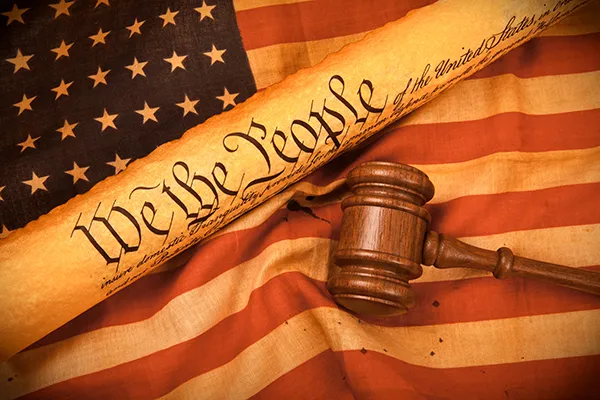Table of Contents
As national focus hones in on the 2016 Presidential candidates, Kentucky Senator Rand Paul continues to gain traction as the possible GOP nominee. Although he has yet to officially declare his intention to run for president, Paul has laid the foundation to be a mainstream viable candidate. With visits to multiple states, increasingly moderate views, and a national spotlight, Rand Paul appears to be positioning himself for national office. It will be up to Rand to decide if the groundwork he has laid out will be put to best use for a campaign for reelection in the U.S. Senate or first time election to the White House.
Dr. Rand Paul is an opthamologist by training, receiving his medical degree at Duke University. In 2010, Paul ran for office and is currently a junior senator for Kentucky. His father, Dr. Ron Paul, spend years in the House of Representatives for Texas. He ran for president in 2008 but lost the Republican Bid to John McCain. Ron Paul is known for his unique libertarian and conservative views, and his son Rand Paul is following in his footsteps.
Originally, Paul was trying to keep his options open by running for both the offices of Senator and President simultaneously. Previous governmental officials have been able to run for multiple offices at once due to bills passed in their home-state congresses. However, the bill to allow Paul to run for both Senate and President died in the Democratic Kentucky House of Representatives after passing the Republican Kentucky Senate. Now Paul will have to choose which office he intends to pursue, or employ some creative political maneuvering.
In 2013, Paul frequently visited swing states and other political epicenters in a clear effort to increase both his presence and his influence. He visited Iowa three times, and is now advised by the Iowa GOP chairman. Paul visited New Hampshire several times, including once this past April for the Freedom Summit Speech. He’s been to South Carolina and Detroit, Israel and Jordan. In addition to his very public appearances and speeches, Paul has been attending fundraisers and networking with large GOP donors. He spent the Kentucky Derby with media tycoon Rupert Murdoch, whose corporation controls Fox News and the Wall Street Journal.
His opinions on important matters have captured the national spotlight and appea variety of voters that may not have previously affiliated with the GOP. “I do want to grow the GOP and I have said very frankly that we need to evolve, adapt, or die,” he said. Paul is interested in expanding the GOP voter base by keeping the loyal voters while capturing the moderates.
He voted with the Democrats on reducing minimum sentencing and has kept his distance on gay marriage and abortion issues. By championing minimum government intervention, Paul is able to tread carefully over social issues that usually cause a partisan divide. Instead of alienating voters by denouncing social issues such as gay marriage or abortion, his distance from the topics and his ideals about the role of government give him a chance at winning voters that would not usually vote for a Republican.
Paul also made headway through careful articulation of his opinions on voter ID laws. Although he did not directly denounce voter ID laws, Paul argued that the Republican Party should not make it such a focal issue and that individuals should have the right to vote. By shifting agenda items, Paul is not excluding his current constituent base but is instead creating opportunities for the median voter to be convinced by his principles.
Paul seeks to maintain Tea Party support and use his libertarianism to attract more moderate voters. However, his efforts might not be as successful as he may hope. Paul reached a stumbling point on his pathway to the White House by supporting the losing candidate in North Carolina’s Republican Senate primary, Greg Brannon. According to Republican strategist Ron Bonjean, “When you are running for president, you don’t ever want to be with the losers, even if you are making an ideological pick.” As a junior senator, Paul simply might not have the rapport with the public to win the election. If his endorsement does not lead to a positive political outcome, perhaps he is not yet ready to tackle the position of presidency.
Additionally, he is not the most popular with the social conservatives of the Republican Party. While he currently has support in the Iowa caucuses, conservative talk showradio host Steve Deace is skeptical about whether that support will grow or even be maintained. If Paul cannot maintain his traditional voter base, much will be up in the air on a national scale. Is he liberal enough to earn the votes of the more conservative democrats? Is he conservative enough to maintain the votes of the republicans? By positioning himself in the middle ground, Paul might not have enough sway on either side of the aisle to secure the support he needs.
Regardless of whether or not Rand Paul decides to run for President, he is making great strides for himself and the Republican Party just by keeping the presidential door open. More than providing himself with the structural framework to run for the office, he is actively expanding the GOP voter base to give the Republican a fighting chance for the upcoming years. If Paul is able to keep the loyal voters while adapting the party to changing social norms, the Republican Party may be able to debate the Democrats on issues they can win instead of social issues that reduce popularity with minority voter groups.








